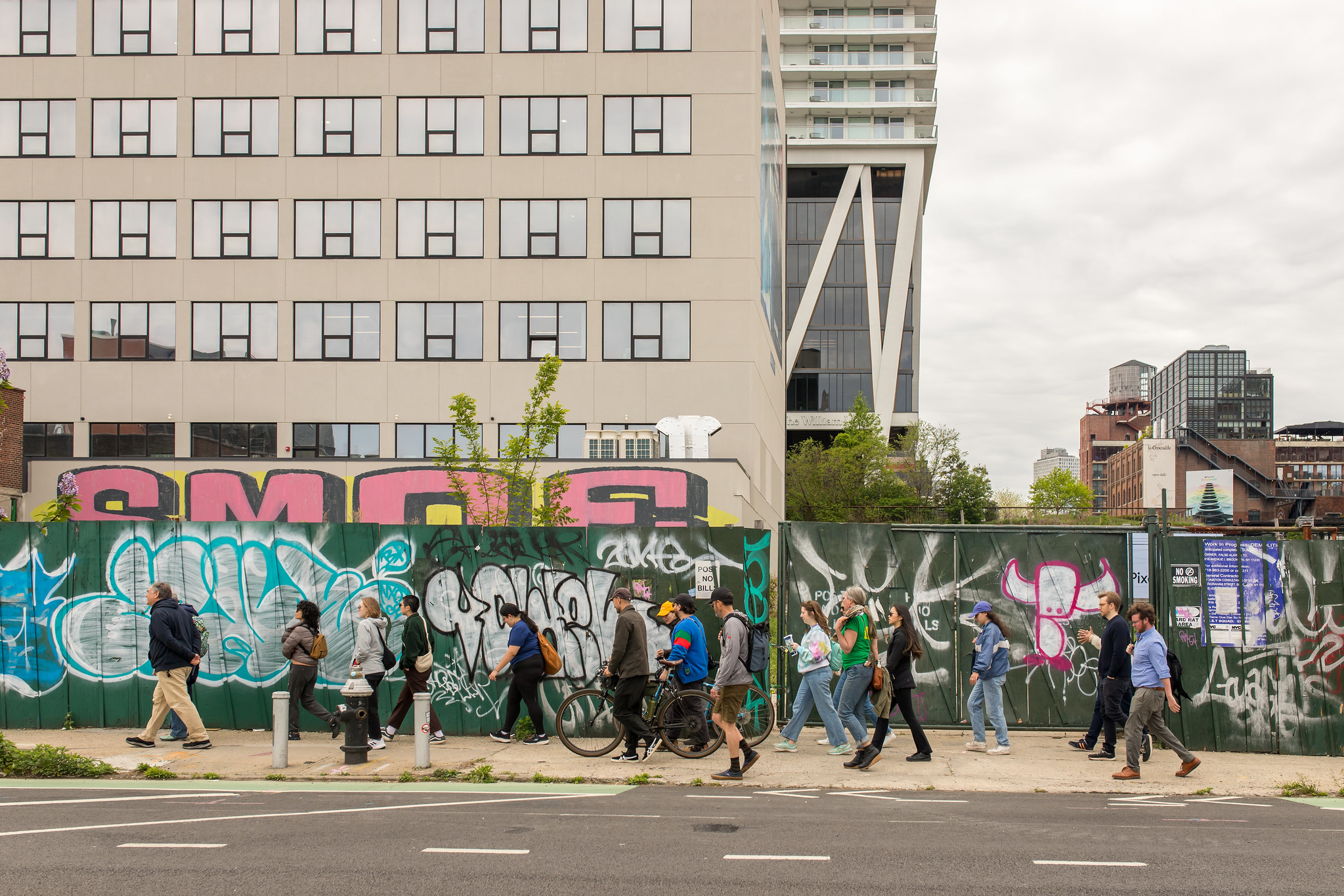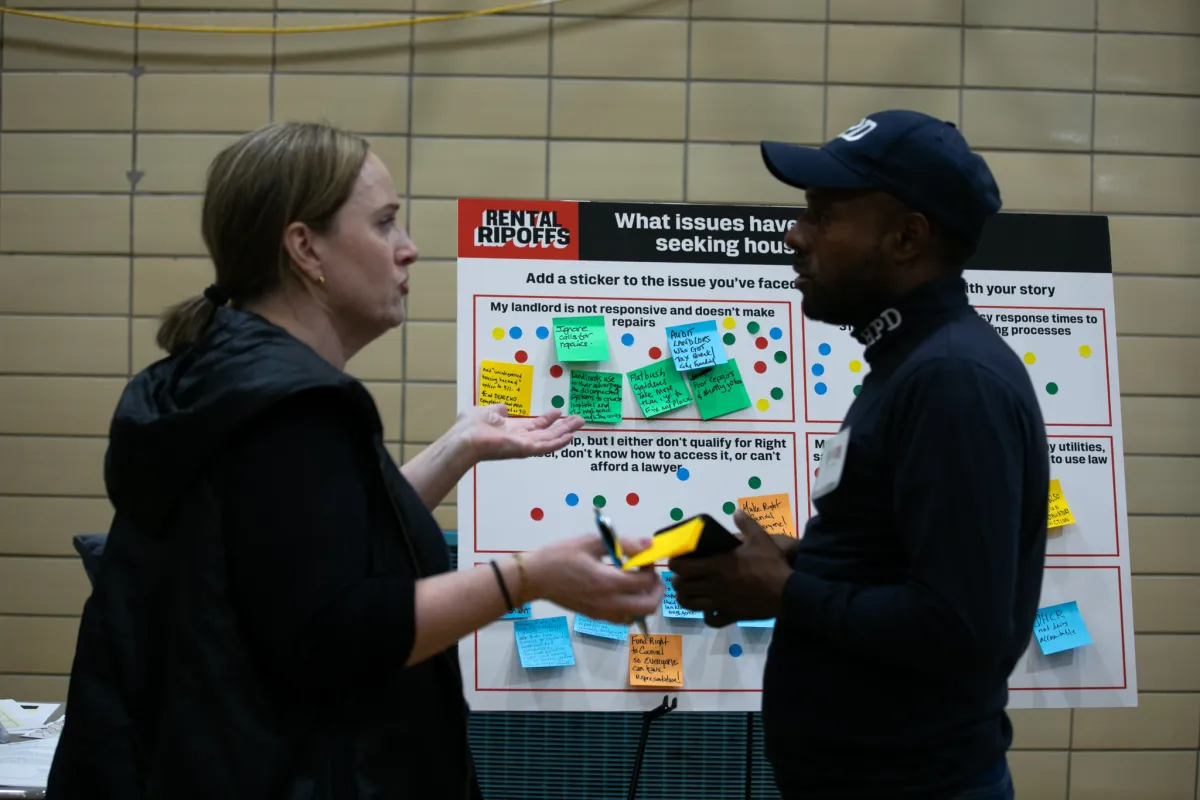Eminent Domain and the Verrazano Bridge
Given that eminent domain is on everyone’s mind these days, we were interested to come across this video about the history of the Verrazano Bridge, which began construction in 1959 and was finished in 1963. As it turns out, over 800 homes were destroyed and 7,000 people displaced to make way for the bridge. We…
Given that eminent domain is on everyone’s mind these days, we were interested to come across this video about the history of the Verrazano Bridge, which began construction in 1959 and was finished in 1963. As it turns out, over 800 homes were destroyed and 7,000 people displaced to make way for the bridge. We wonder how much public outcry at the time, which was towards the end of Robert Moses’ reign.
Verrazano Bridge a Brief History [YouTube]





“Apartment owners” was definitely a slip of the keyboard. While we’re at it, “Democrats” should have had capital D.
I agree. The scale of this thing is nuts. If we want to provide employment for union tradespeople from Long Island, why don’t we just build a pyramid?
The more I head about this development, the more I become convinced that it is a terrible deal for all New Yorkers. We should start from scratch and get it right. No eminent domain abuse, no out-of-porportion development. We don’t want Brooklyn to become another mid-town in 30 years.
All you anti-AY flamers, please take your stupid cause to http://www.atlanticyardsreport.blogspot.com and jerk each other off all you want there. I’m so sick and tired of having every decent thread on this site destroyed by your nonsensical arguments! Give it a break already – no one cares!
Now can we please hear more about Bay Ridge and the Verrazano Bridge. Jeesh!
My mom grew up in Bay Ridge and remembers signining petitions against the bridge. Hey, they tried.
“Apartment owners”? Not around there, back then…in Bay Ridge you rented or owned a house.
I heard this story long ago. Probably an urban myth:
There was indeed a great hue and cry from apartment owners in Bay Ridge who were living on the planned approach. They were well-organized democrats and they fought hard for ample compensation. They got it, used the money to buy houses in Staten Island, and all became Republicans.
“@3:41 – so if they were taking this home from you to build a bridge or a road or a publically built housing project (and arena) it would be less upsetting?”
Actually, yes, it would be much less upsetting. The state has to have these kind of powers, to be exercised with great discretion. Ordinary citizens who’re out to make a buck do not, and should not, have such powers.
“I’m sorry if you just want to repeat a mantra – that there is no public good from AY…”
I doubt that there is a public good, but suppose for the sake of argument that there is public good. In fact, suppose there is an incredible public good of monumental proportions, much like the good to be derived from highways, dams, etc. In that event, the state ought to be behind the project. Of course, I suppose the state is behind the project now, since the state is going to be funding it. But in that case, the taxpayers ought to see the eventual benefits instead of some private developer.
“I’m not saying that they shouldnt have build the Bridge, only that ED is a very powerful force that has to be used carefully and the fact that it is “public” builder vs a “private” builder should be of small consequence..”
This is similar to the argument that the state should farm out the management of prisons to private firms. The results of doing so have been disastrous, largely because the primary concern of the state is to protect the public interest while the primary concern of a private firm is to make money. Why should we expect better results when we turn ED over to private interests?
If Ratner could supply a paramilitary force to ‘protect’ the citizens of NYC more cost effectively than our current police force, would you be comfortable with that? I mean, what matters is that we have police, right? What difference does it make whether they’re public or private?
@3:41 – so if they were taking this home from you to build a bridge or a road or a publically built housing project (and arena) it would be less upsetting?
I’m sorry if you just want to repeat a mantra – that there is no public good from AY and end the debate there then go ahead…but many people (who arent corrupt or bought) see the public benefit of covering an ugly eyesore, building an arena for Brooklyn, creating more housing both affordable and not so affordable, economic development, construction jobs, etc….
And if there is a public benefit then you have to weigh that against the acknowledged pain of using ED (a legitimate government function according to the constitution). Now in this case we are talking about literally a handful of homeowners (I believe 3 or 4 new residents – and yes being new is a factor) who will be facing ED procedures. Is it bad for them – sure, but IMO compared to the public benefit – it is a legitimate use of ED.
I mean look at the Bridge – you are talking about thousands of people who were forced out through ED and dont you think people made a ‘killing’ on building the bridge – isnt there a toll on the bridge-isnt someone collecting huge sums of $ from this “public project”? Didnt land owners in SI make a fortune b/c the bridge was built. Wouldnt a tunnel or even a rail tunnel (the original PA NY/NJ mandate) have served us better without having to use ED?
I’m not saying that they shouldnt have build the Bridge, only that ED is a very powerful force that has to be used carefully and the fact that it is “public” builder vs a “private” builder should be of small consequence. Of course it isnt here…simply b/c the opponents dont want it built (under any circumstances) and “ED abuse” mantra fits in well with their current agenda.
“…clearly the direction of this thread again establishes how intellectually weak and desperate the opposition to AY and the use of ED at that location is.”
How so? Aside from being nasty and somewhat out of line in my opinion, the earlier posters used your own reasoning against you, and you didn’t like the result. That, it seems to me, is a salient point.
“I also fail to see why it would be so emotionally devestating to leave an apartment you couldnt have owned more then a couple of years max.”
Someone might fail to see why it would be emotionally devastating for you to throw away your father’s pocket watch, to sell a table you built with your late brother, or to put down a dog you’d had for a couple of years. In that case the failure is with that person’s vision, not with your emotions.